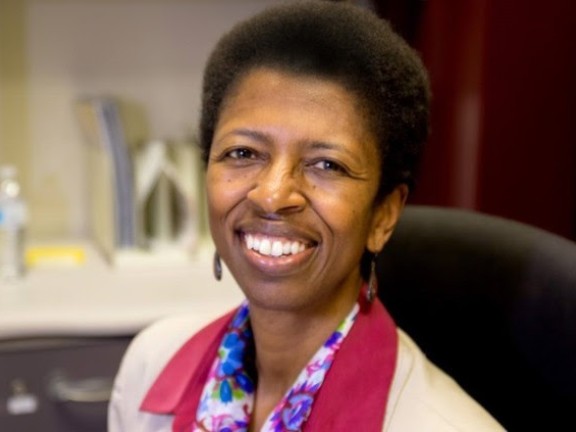HAMEC Black History Month Event

On February 6th, 2022, the Holocaust Awareness Museum and Education Center (HAMEC) in partnership with the office of Philadelphia City Councilman held a Black History Month webinar event featuring Mary L. Romney-Schaab.
Romney-Schaab is the author of the book An Afro-Caribbean in the Nazi Era: From Papiamentu to German. The book details the story of her father, Lionel Romney, an Afro-Caribbean man who survived the transit camp Fossoli and was then taken to Mauthausen during World War II (WWII). During the webinar, Romney-Schaab began her presentation with an overview of oral history and its importance to history overall. She noted that oral history creates a bridge between a person’s lived experiences and historic events and said that all history is a personal narrative. Oral history is especially important for Black families and other groups of people with oppressed histories because it serves as a way to bring their histories to life, to regain ownership and control over their stories, and provides space for healing past trauma.
What would later become a book detailing her father’s story started out with Romney-Schaab’s interest in learning more about her family history and her St. Martin roots, which she was able to do by recording her father’s oral history. As it turns out it was Romney-Schaab’s mother who initially told her about Lionel’s involvement in WWII and being in concentration camps.
Romney-Schaab could not get her father to speak about his experiences in the war until she brought a stranger with her to record the conversation. Romney-Schaab’s presumption is that her father was more comfortable speaking about his experiences with a stranger in the room because they served as an object observer who had no emotional relationship with him, so there was no risk of judgment or transference of trauma.
When speaking about Lionel’s WWII experience, Romney-Schaab noted that her father was entangled in the war by accident. Lionel was a merchant sailor which is what brought him from the Caribbean to Europe. While he was sailing, he was deceived into getting on a ship traveling towards Greece into the war zone when he thought the ship was going East away from it. Lionel and other merchants on the ship did find out that they were tricked, however, it was too late for them to do anything. While aboard, Lionel was taken captive as a political prisoner in Italy and was placed in a series of internment camps until 1944. He was deported from Italy to the Mauthausen concentration camp where he remained a prisoner for almost a year.
There were several kinds of concentration camps, but Mauthausen was unique because it was the only camp designated to work its prisoners to death. There were over 10,000 camps in the entire concentration camp system which was monstrous in every way. Lionel was deeply traumatized by his experiences at Mauthausen and expressed to his daughter that there were constant fears of whose number would be called to die next. Romney-Schaab noted in her presentation that one of the most common ways for prisoners to be killed (especially Jewish prisoners) was by throwing them over the ledge into the quarry. However, Lionel was able to survive in part because he was assigned to work as a lumberjack rather than to work in the quarry.
Today, the Mauthausen concentration camp is a museum and Romney-Schaab had the opportunity to visit and stand inside barrack number nine where her father was imprisoned. Though it was a very emotional visit for her, Romney-Schaab was glad she was able to visit because it gave her the opportunity to walk in her father’s footsteps. It was also a way that both of them could receive closure. Overall, what Romney-Schaab and her father’s stories demonstrate is that oral history is valuable to our understandings of history in general and that these stories are ones we should constantly pursue for our healing and elevation as individuals and societies.
